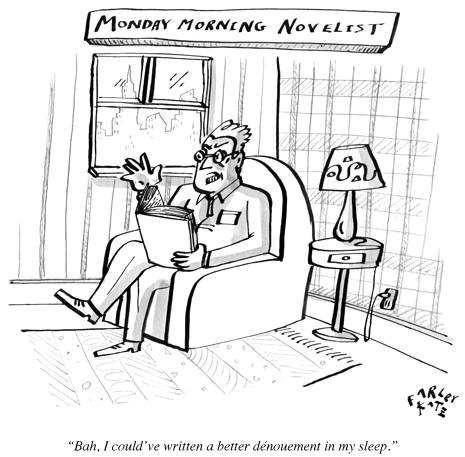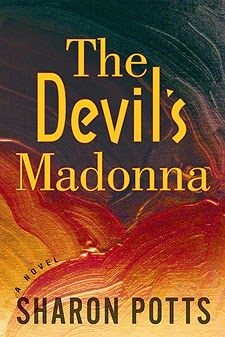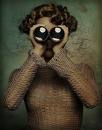“It is easy to be wise after the event.”
— Arthur Conan Doyle, The Complete Sherlock Holmes
5. Keep good notes, chronologies, timelines, dossiers. This is crucial if you are writing a series but you need to do it for any novel. If you don’t write things down, you will lose valuable time looking up stuff about your characters or plot. I have an old-fashioned loose-leaf binder in which I record vital stats for every character in every book. (And don’t think that cameo might not come back in a future book!) Here’s my friend SJ Rozan on the subject:
I wish I’d kept better notes. I have an eleven-book series that I keep leaving and coming back to, two standalones, and, as Sam Cabot, two paranormals in a new series. That’s a total of fifteen books. Plus about three dozen short stories. That means I’ve written about a million and a half words. It didn’t occur to me twenty years ago when I wrote the first book that I might lose track of, say, the names of Lydia Chin’s brothers’ wives. In fact I think I might have felt it was overweening, for me to think anything I did was important enough to keep notes on. Now I find myself rooting through my own work like a squirrel looking for nuts.
6. Don’t try to go it alone. You must network. You must find support. And not just from family but from like-minded writer souls. You need to share with others your problems about writers block, your despair over rejection, your happiness when something good happens. You need to know that your problems are not unique and that they can be overcome. I didn’t learn this until oh, about book three, when I finally started going to writers conferences. I could have learned so much from other writers! Here’s my friend Sharon Potts talking:
I had assumed when I started my first novel that writing was a solitary process and I spent my first year locked away in my garret drinking cheap wine and smoking Gauloises. Just kidding–the wine was expensive and I didn’t smoke. Then I discovered Mystery Writers of America and it was a real eye-opener. It was like dropping into a cabal where I was offered the secrets to getting published. But even better than that, by attending workshops and conferences, I learned how to improve my own writing and made friends who were instrumental in my success. I don’t regret the wine, but I sure wish I’d joined MWA sooner.
7. You must read. Not just for pleasure (although that is fine!) but with a cold analytical eye toward how other writers spin their magic. Read widely in your genre, but also outside it because that can make you braver. Read some bad books, too. You can learn from them and it can boost your confidence. But it’s better to read really great stuff that makes you want to stretch your own writer wings. Here’s my critique group buddy Neil Plakcy on this subject:
One of the most valuable things I learned in graduate school was to read like a writer — to be analytical about things like chapter length, pacing, cliffhangers, the balance between narrative and action, and so on. That when I see something I admire in another writer, I should analyze it to see how the effect was accomplished. I wish I’d learned that back in college, when I first studied creative writing.
8. Your publisher is not your friend. This sounds bitter but I don’t mean it to be. But I didn’t understand this at first. And even though writers today are smarter, I think many are a little naive, believing that once they sign a contract they will be “taking care of.” The fact is, publishers want to make money. If you can help them do that, you will have a fine and fruitful relationship. But if circumstances are such that your book does not sell sufficiently, you can be dropped. It has nothing to do with you personally. It may not have anything to do with the quality of your book. Publishing is a business. A business that is now challenged by market forces and going through a wild state of flux. Yes, you can have a good relationship with an editor. But if you want a friend, get a dog.
9. Your worst character traits will be amplified. It’s been said that when you get old, you become yourself but even more so. This is true of writers as well. Something happens to otherwise normal folks when they enter the creative fugue state of novel-writing. Maybe it’s because, unlike other jobs, we have no easy ways to gauge our success — no weekly paychecks, no performance reviews, no boss breathing down our necks. Writing is faith-based and lonely. So it tends to magnify whatever is strong — or weak — within us. Are you a procrastinator? Ha! Wait until you paint yourself into that plot corner. Are you a conflict-avoider? Well, being at the mercy of a publishing house is going to drive you nuts. Are you a tangled yarn-ball of self-doubt? That first bad Amazon review is going to have you in tears. Are you full of yourself? You will get a quick rep for being a panel-hog at writers conferences and no one will sit next to you at the bar. Learn where your fault lines are and work with them. Or get a good shrink.
10. You won’t get rich. This is a true story: Back in 1982, I read an article in Money magazine about housewives who were making tons of money writing Harlequin romances. (I swear I am not making this up but I think Money magazine was). I told my husband I was going to write a romance so I could quit my job and we could get rich. I wrote a novel called The Dancer and it got published out of the slush pile (see no. 1). My advance was $2500. I never made any royalties. I didn’t get to quit my day job. We didn’t get rich. But it did launch my career and though my original motive was shallow and stupid, I did come to realize I wanted to actually be a serious writer. I can’t say I still didn’t think about getting rich but I found out money wasn’t what motivated me. I discovered that writing was the one thing I really wanted to do, and that I had to give it my heart and soul. And after thirteen years, I can look back now and say that wasn’t such a bad lesson.
Hey, the mail just came, and guess what? I got a royalty check from Japan! It’s for $15.66. That’s a decent bottle of Pinot. In honor of my windfall, I will let my old friend Rod Stewart have the last word . Take it, Rodney!
I wish that I knew what I know now
When I was younger.
I wish that I knew what I know now
When I was stronger.










